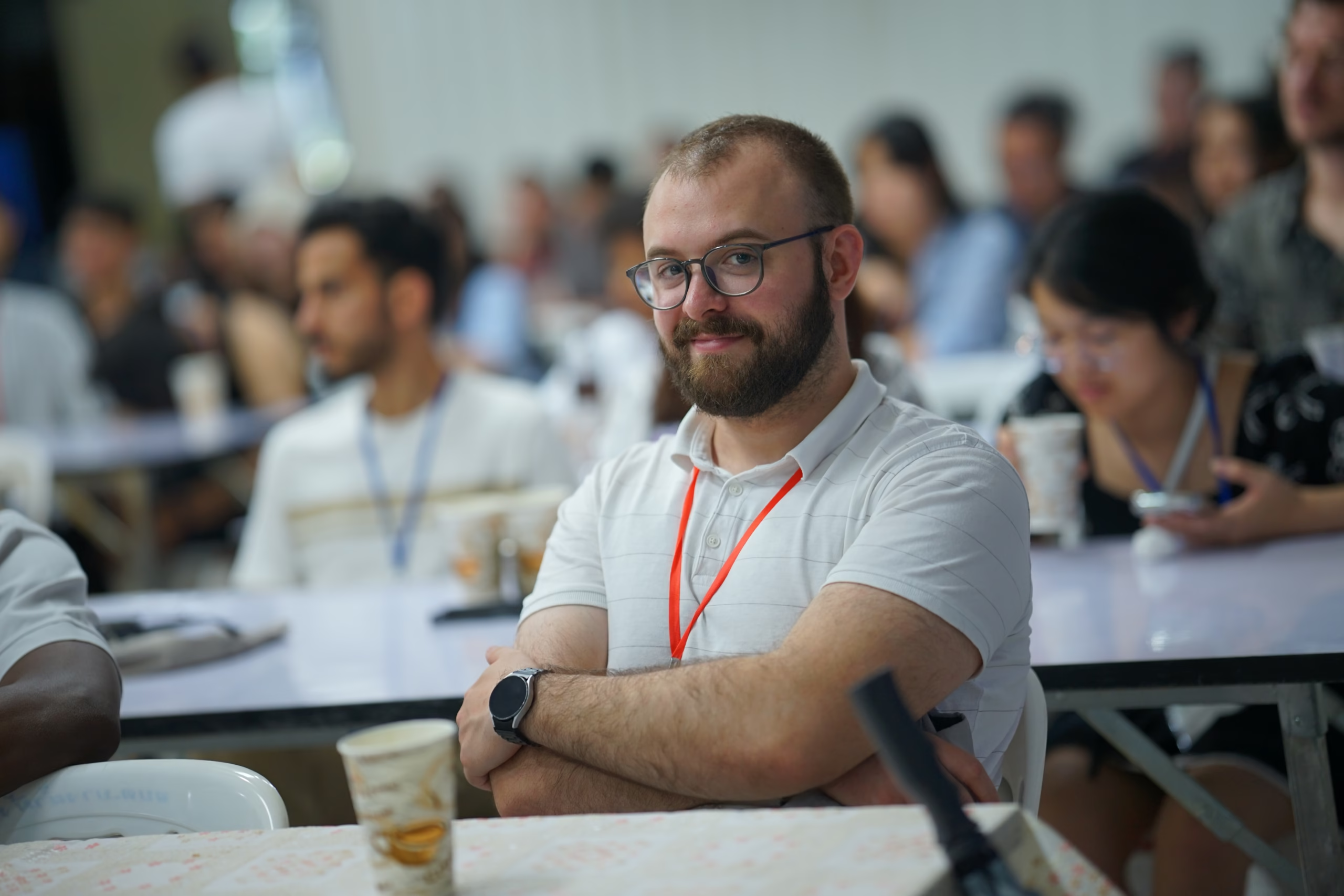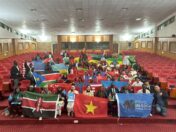“Sustainable development isn’t just a business strategy; it’s a shared goal by all generations” says Michael Glasek, also known as Mike, the Director of Marketing and Growth at Chinese Youth Growth Foundation (CYGF), with a firm look in his eyes. As native of Poland, Mike has lived in Taiwan on and off for a decade. After completing his studies, he decided to stay and include the Taiwanese market in his business consultancy portfolio. But beneath the surface of this business professional lies the soul of an educator.
Having traveled with the CYGF since the Okinawa Forum, then Mike had become a key driver behind the Bangkok forum. He’s now also the CEO of the City Forum Foundation, continuing to dedicate himself to the field of sustainability and fulfilling his dream of education.
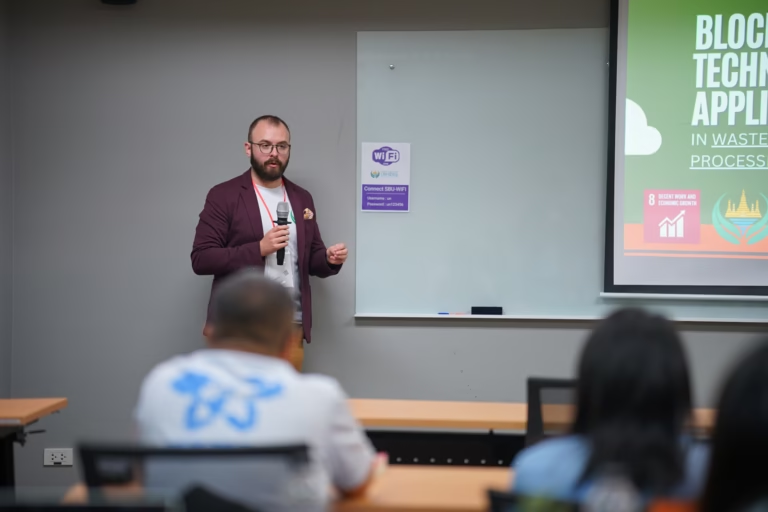
The Sustainability Dream that Began in Okinawa
Now fully dedicated to his work with the Foundations, Mike is not only responsible for marketing and organizing City Forums, but also pours his energy into designing different events and sustainability courses. His experience at the Okinawa Forum in October 2024 was the starting point for his involvement in international youth sustainability education and, and it was a source of great inspiration. “After Okinawa, I became more familiar with the events and wanted to further support the Foundation’s educational work,” Mike says. “I want to help and support this generation on their journey to create change.”
This inspiration motivated Mike to move from being a forum participant to a key figure behind the scenes, working with the foundation to promote “youth empowerment” and “youth co-creation,” and to realize the vision of supporting the next generation to drive change.
More Than Just Presentations: A Gathering of Doers
When talked about his motivation for participating in the Bangkok Forum, Mike saw it as an excellent opportunity to “amplify youth impact.” He explains that since Okinawa, he had been deeply impressed by the potential of young people in international participation. His involvement as a staff member in Bangkok was to show others the potential for “available, localized, and internationally connected” action that can emerge from youth co-creation.
“In Bangkok, I saw many local teenagers and university students actively getting involved and participating in the forum. You will realize that some people choose to care about the world, while others choose to look away.” Mike shares. In his view, this atmosphere of actively addressing global issues and the future is what makes a youth forum so valuable. It creates a space where those who “choose to care” can step forward, see one another, and inspire each other.
Mike’s crucial role in the Bangkok forum was to create this “space” he talks about. At both forums, Mike attended as a Polish representative. But this time, he took on the additional role of “coordinator,” responsible for planning the entire “SDGs Seminar Presentation Session.” He built a stage for all the young presenters to shine, to confidently showcase their ideas and projects.
“I believe that empowering others to shine is a contribution in itself,” Mike emphasizes. “More than giving my own speech, I cherish the moments when these young people take the stage and present their research and entrepreneurial ideas.” He sees this as his duty as a “torchbearer”—to light the way for others and, in doing so, light up the future.
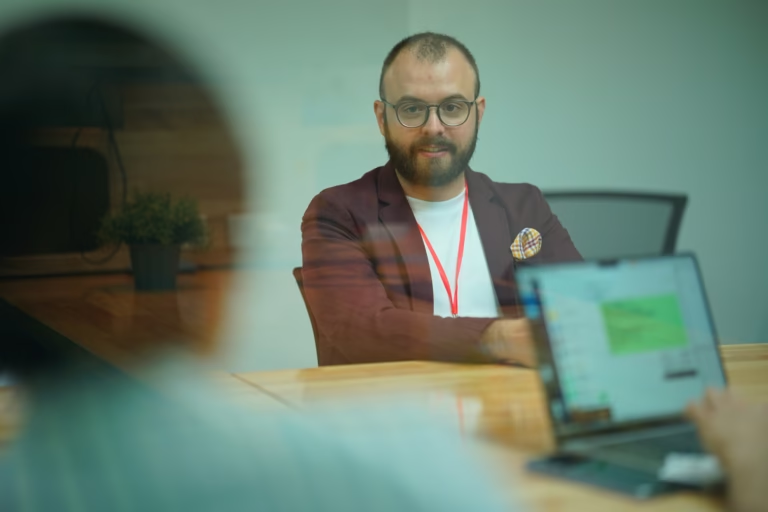
An Empowering Experiment in Innovative Thinking
Mike’s role as a torchbearer extends beyond the forums and into local communities and people’s lives in Taiwan. At the forum, Mike presented his MBA research project: Blockchain Technology Applications in Waste Management Recycling Processes in Taiwan. Guided by Professor Kuan-Cheng Huang, the goal of this theoretical research was to create an environment where non-unionised garbage collectors in Taiwan could leverage their bargaining power (thus increasing their quality of life) by using blockchain-ledgers for waste recycling transactions.
“Although this project faces challenges in commercial scalability, it focuses on the underprivileged people that is often ignored by society. I believe a topic like this deserves to be seen.” he admits. While this idea may not be immediately implementable, he still showcased his project to young young leaders how being logical, smart and fast about your work can do wonders for your life.
Efficiency and Resilience: Archive People and Providing Support
Mike’s professional expertise lies in budget optimization, and he has successfully helped businesses improve their performance in numerous consulting projects. He believes the underlying value of this profession is not just about helping companies make money, but about transforming “efficiency” into a force that can bring our society to a better future.
“I always tell young people: when you can act logically, wisely, and efficiently, your life will be completely different,” Mike points out. He believes that when implementing sustainable solutions, having good and logical management to ensure efficiency is a major key to success. When this mindset is applied to other fields like gender equality or educational justice, it becomes a “sustainability-oriented code of conduct.”
In addition to efficiency, another value Mike prioritizes is understanding and supporting each other. “During the Bangkok forum, there was an unexpected hiccup. Just as we were about to start the presentations, we discovered there was no laptop available! The whole team instantly panicked, ‘What do we do now?'” Mike recalls.
“The solution came when one of our partners volunteered their own laptop so the presentation could proceed smoothly,” Mike shares. “Sometimes it’s not technology, but empathy and humanity that save the whole event.” It’s these small but deeply symbolic moments that reinforce his belief: sustainability and change must start with understanding and support between people.
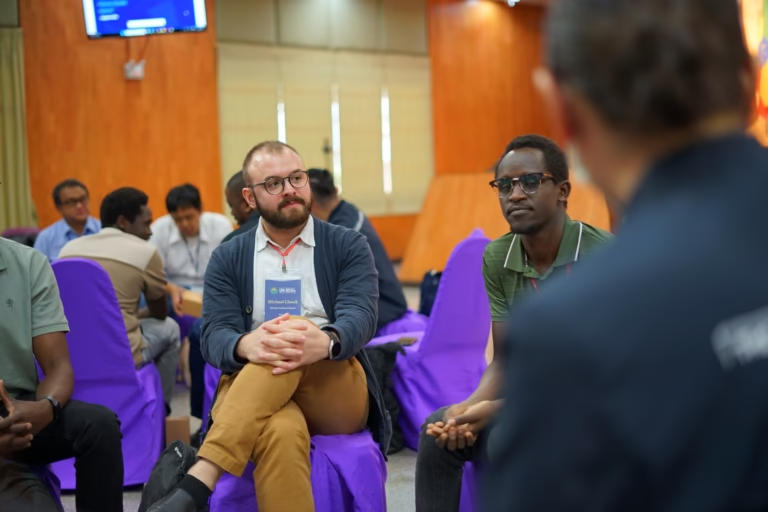
From City Forums to Educational Programs
“My interactions with the young participants in Okinawa were truly unforgettable,” Mike says. “They were so young, yet they had the most direct and pure sense of purpose. That made me believe that sustainability education should never have an age limit.” This is precisely why he decided to dedicate himself to sustainable education—from city forums and small events to designing sustainability courses, to include more age groups, especially middle and high school students.
As a participant in multiple international forums, Mike has his own observations about the styles and differences of each event. “For example, the key partner of the Bangkok Forum, Southeast Bangkok University, showed a high degree of organizational skills and cultural inclusivity. They made sure to include a lot of local Youth – Thai students from the SBU, who made us not only feel more welcomed, but also able to talk about local things and perspectives,” Mike notes. “In contrast, the Okinawa forum was more focused on exchanges among international participants: the delegates from various countries, and Taiwanese Youth, working together across ages and cultural differences” This comparison confirms his belief that “local mobilization” and “international connection” are equally important and indispensable.
Take Action, Don't Wait for Qualifications
As a sustainability educator, Mike says he loves the famous quote by playwright: “You see things; and you say, ‘Why?’ But I dream things that never were; and I say, ‘Why not?'”
“What I want to say is, for young people, it’s crucial to get involved as much as possible and not miss any opportunity,” Mike concludes. “Speak your mind and take action. Don’t wait until you feel ‘qualified.'”
Mike embodies not only a cross-border, cross-generational connection, but also a passion for action, a professional dedication to efficiency, and a tireless commitment to advancing sustainable values. The starting point for changing the world may not be far away at all—it’s hidden in every moment we choose to act. As he says and demonstrates: “The world never needs perfect people; it needs people who are willing to take actions.”

